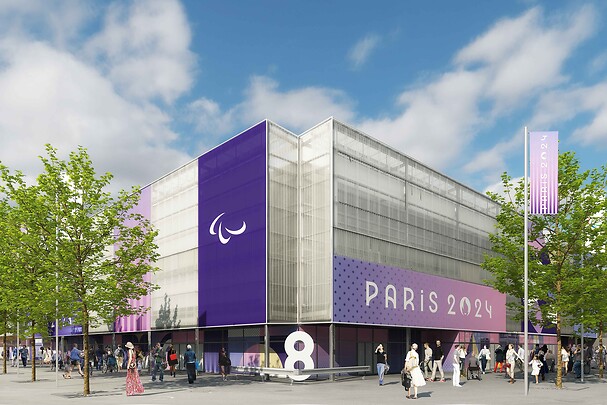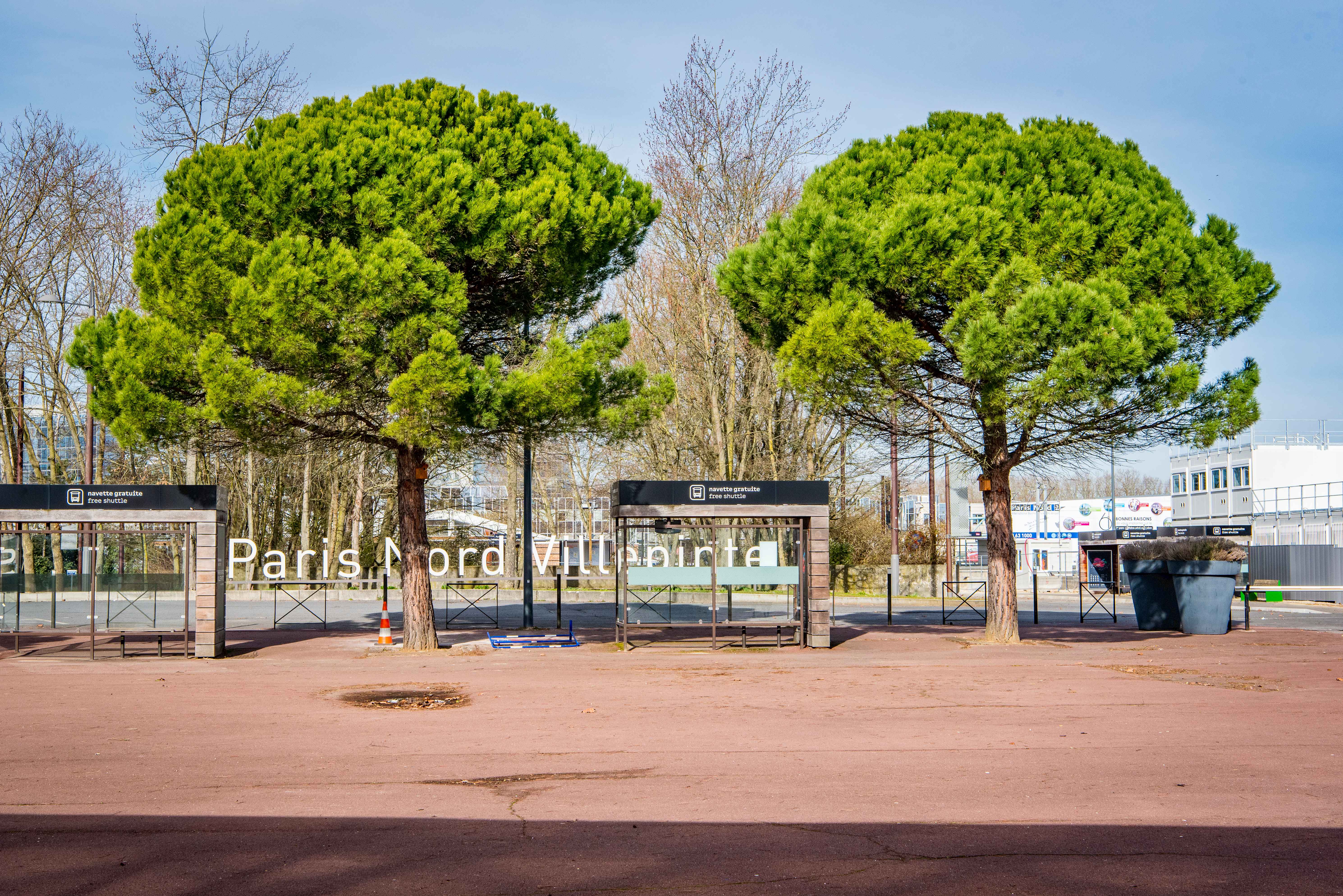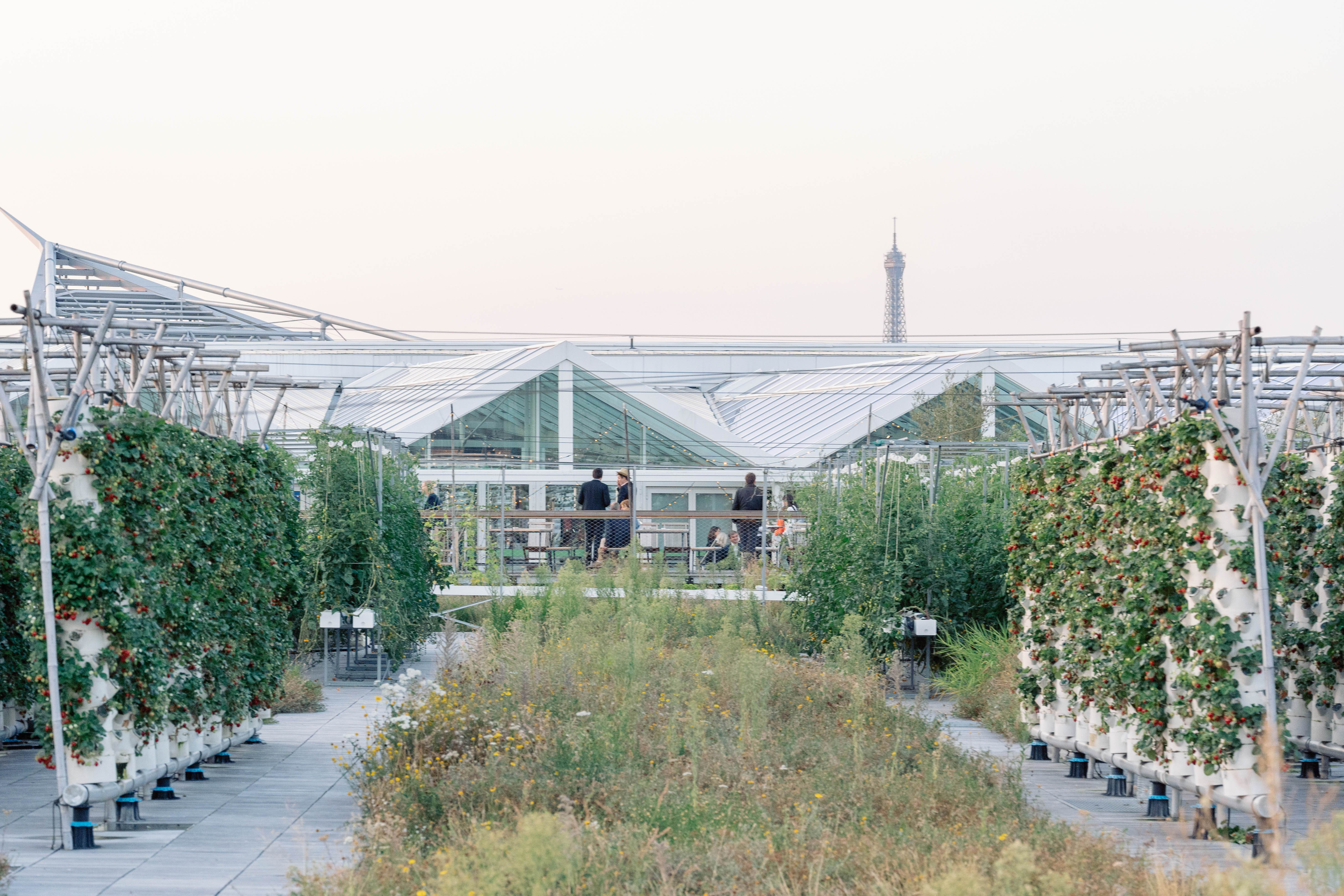
5.30.2024
7.26.2024
The Paris 2024 Olympic and Paralympic Games are fast approaching! While they are an opportunity to promote the Paris Region, they also offer a chance to give the capital a platform to highlight its environmental commitments. Indeed, a clear target was declared for these Games: to halve the carbon footprint compared with previous editions. These commitment tie in with our ambition at Viparis to develop a more sustainable events industry. In practice, though, how does that play out? What innovations will help to reach this goal? Will the Paris Region ultimately emerge greener at the end of the competition?

More “sober” and more sustainable Olympic and Paralympic Games, but with just as much spectacle
These words perfectly capture the ambition of Paris 2024, which aims to use every possible means to minimize its climate impact through responsible solutions. For the first time, the AAROM method was devised and incorporated into all its operations to Anticipate, Avoid, Reduce and Offset emissions by Mobilising the entire Paris 2024 ecosystem.
The Organising Committee cut the number of new-build venues and the production of equipment by using 95% of existing or temporary infrastructure, including four Viparis venues. To engage with all the participants – athletes, employees and partners -, Paris 2024 launched the “Climate Coach” app to help people understand and reduce their personal climate impact.educe their personal climate impact.
Staying on track, down to the finest detail
Every aspect of the Paris 2024 Games has been meticulously planned, including food. Over the course of two separate fortnights, Paris 2024 will have the task of serving 13 million meals to athletes and volunteers, but also spectators and the journalists working at the event. Herein lies a double challenge: satisfy the needs of the public, while offering more sustainable dishes. To do so, the organisers have overseen the design of a healthy food offering, with which is mostly plant-based, but also locally sourced and affordable. Additionally, they aim to halve the use of single-use plastics for food packaging. As for unsold goods, they will be donated to local charities.
However, certain carbon emissions such as spectator travel cannot be avoided. Therefore to offset them, Paris 2024 is funding projects to fight global warming or contribute substantial social benefits.
And how does Viparis measure up?
Certified by the ISO 20121 standard since 2014 and with its policy Better Events 2030, Viparis stands out as a pioneer for environmental action in the event industry. The fourViparis venues hosting Paris 2024 activities also place emphasis on preserving biodiversity, optimising lighting and heating systems to reduce energy consumption, and making a concerted effort to recycle/ reuse most of the waste generated by the events we host.
Paris Nord Villepinte (North Paris Arena), with its 200,000 sqm of green space, its HQE (high environmental quality) certified hall 7 with its planted roof and the presence of a partner that promotes reuse in event management, contributes to reinforce eco-responsibility in event management. This partner supports event organisers before, during and after their event to reduce their material impact and recycle their waste. A certificate of traceability is provided to guarantee that the waste is given a second life by recognised partners with a strong social and local impact. Wood, metal, fabrics, furniture are reused by a virtuous circular economy solution, for housing renovation, creation of eco-designed furniture, solidarity or upcycling workshops.
Paris Expo Porte de Versailles (South Paris Arena) also has environmentally certified (HQE, BREEAM, Effinergie) halls and hotels, and has set up a waste sorting centre with a partner, together with rainwater harvesting systems.
La Serre, located on the rooftop of Paris Expo Porte de Versailles, brings people into direct contact with one of the largest urban rooftop farms in Europe, producing 1000kg of fresh fruits and vegetables per week. It host also a massive waste sorting and recycling area that allows events to take advantage of a virtuous circular economy system to ensure that waste is optimally recycled and reused.

On its own level, Viparis also plays its part in terms of biodiversity by increasing space given over to nature: grassed areas at Paris Expo Porte de Versailles, wildflower prairies at Palais des Congrès de Paris, the application of a Biodiversity for green spaces charter (for example, zero phytosanitary products), and also the installation of 22 beehives spread over 4 different venues that produced 1,000 pots of honey last year, and have already won 2 gold medals in the Miel du Grand Paris competition. Our venues are also home to a nesting box for birds of prey, 20 regular bird nesting boxes, 15 insect hotels, 27 sheepthat graze the lawns of Paris Nord Villepinte, and two bat shelters.
Leading by example, in France and worldwide
As a signatory of the Net Zero Carbon Events Pledge and the Paris Action Climat Biodiversité charter, brings its commitments to life by reducing its energy consumption, using electricity from certified green sources or switching energy sources, optimising logistics with, for example, an off-site logistics platform in the case of Palais des Congrès de Paris, and supporting new mobility for last-mile deliveries. We are also dedicated to developing more sustainable buildings such as Paris Le Bourget Hall 3, comprising a 20,000 sqm wooden roof structure generating 50% lower built-per-sqm greenhouse gas emissions[1] than Paris Expo Porte de Versailles pavilion 6, which itself holds HQE and BREEAM (building energy efficiency) certification, and where 94% of demolition materials were reused (including 65% repurposed on-site).
Our commitments are also reflected in our refurbishments and changes to our processes: no heating and air conditioning during stand set-up and dismantling, the use of free cooling, raising contractors’ awareness to unusual consumption increases, etc.
Similarly, Viparis seeks to reduce negative impacts and promote positive impacts on the environment, by building eco-design into its proposals and sustainability into its purchasing (addition of a CSR clause, 20% weighting given to CSR in invitations to tender).
As regards food, following the lead of Paris 2024, we make sure, through a CSR annex, that our caterers include more responsible options in their offerings (vegetarian, increasing the proportion of seasonal labelled produce from short selling channels, and biodegradable and/or reusable packaging). The foodservice concession holder at Paris Nord Villepinte has deployed a biowaste recovery channel with an SSE company. Additionally, our listed caterers are required to offer unsold goods to charities to avoid waste.
The Paris Region will certainly be greener for the Paris 2024 Games – and it will stay that way!
Interested in finding out more? In our next article, we will be covering the innovations of the Paris Region for the Paris 2024 Games, but also the commitments that help us at Viparis stay at the cutting edge in terms of modernity. So watch this space! [and sign up to our newsletter!]
[1] Greenhouse gas emissions of construction products ad equipment